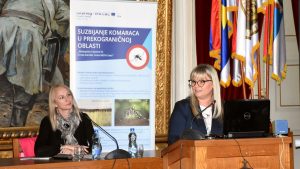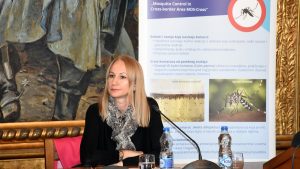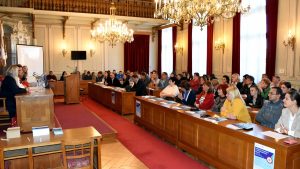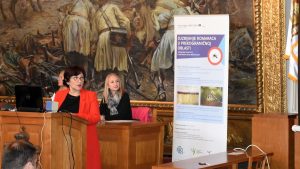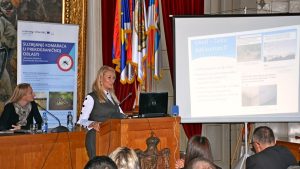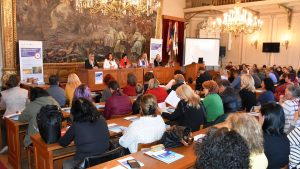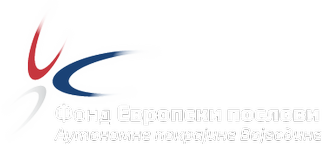The closing ceremony of the “MOS-CROSS” project held in Sombor
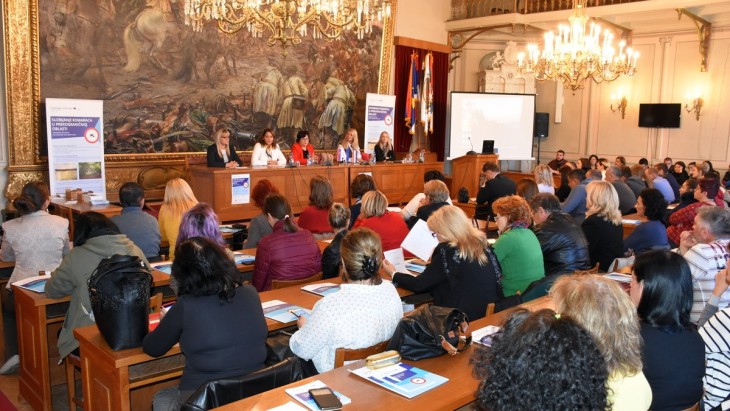
The closing ceremony of the EU project “MOS-CROSS”, which the European Affairs Fund of AP Vojvodina implemented with its partners: the Public Health Institute Sombor and Institute of Public Health for the Osijek-Baranya County, was held at the City Council of Sombor on Friday.
Vidosava Enderić, director of the European Affairs Fund of AP Vojvodina, addressed the audience and thanked the partners for being dedicated to work over the 27 months of the project. “In addition to financial assistance under the Cross-border Cooperation Programme, the key to the long-term objectives defined by the Europe 2020 Strategy is to maintain existing and establish new partnerships in future calls. The ‘MOS-CROSS’ project worth EUR 982,167 is not the only joint project of the European Affairs Fund of APV and partners from Osijek-Baranya County. The cooperation will continue in the future, as our new project ‘MOS- CROSS 2’ has been granted funding”.
In addition, “Europe, as a continent, is facing new diseases previously known only in tropical regions and regions of other climatic regimes. Invasive species arriving in Europe through different transport routes adapt to the new environment relatively quickly and inhabit a new space. Given the potential of mosquitoes to transmit the disease, their control is getting more and more important in Serbia and the world. Thus, as witnesses to the existing problems created by mosquitoes on both sides of the border, we also defined the project objective – to control mosquitoes in the cross-border region and improve the efficiency of the mosquito control system”, said Director Enderić and informed the participants that while the project was implemented, equipment for mosquito control and sampling was procured, the employees of the Public Health Institute Sombor and the Institute of Public Health for the Osijek-Baranya County, as well as general practitioners were trained in the protocols for identifying the symptoms of mosquito-borne diseases.
In addition, maps showing the locations where mosquitoes lived were developed. Based on the maps, the entire border area was treated in an eco-friendly manner. Citizens were delivered mosquito dunks to control mosquito larvae and taught how to use them. Moreover, one of the important outcomes was software and a web platform which the Institutes started using during the project, containing information where mosquitoes laid eggs, where they lived, what the critical points to control them were, moreover, data on traps, their number and contamination. Finally, recommendations for local government units were developed to instruct them how to spend their budgets to control mosquitoes in the best and most efficient way.
The conference was attended by over 80 people from different institutions from Serbia and Croatia. The project was presented by the project manager Dr. Dragoslav Čubrilo, Public Health Institute Sombor, and prof. Magdalen Sikora, Public Health for the Osijek-Baranya County. Prof. Dr. Željka Jeličić Marinković, one of the lecturers at the training for health workers, spoke about the importance of education and the topic covered in the course of 4 workshops.
The participants also had the opportunity to watch an educational video clip about mosquitoes developed within the framework of the project.
The partners announced the continuation of the Mos-Cross 2 project, in which the current partners would be joined by one new partner from Serbia and Croatia to share their previous experiences with the West Nile and Zika viruses, as well as to acquire new knowledge on the topic of new invasive species of mosquitoes transmitting malaria, chikungunya and dengue.
